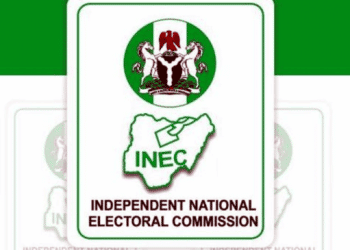Nigeria’s election monitoring body, the Independent National Electoral Commission (INEC) has warned political parties in the country to study and note the marked differences between the Electoral Act 2010 and the amendment in the 2022 version of the electoral law to avoid making terrible mistakes.
This was as the electoral body warned political parties to put their acts together ahead of 2023 elections and avoid waiting till the last minute to take actions on constitutional issues that are time bound.
Speaking at the Zonal Sensitisation and Candidates’ Colloquium on Electoral Act 2022 organized by the Senate Committee on Electoral Matters, INEC National Chairman, Yakubu Mahmood therefore
advised the political parties to familiarize themselves with the provisions of the latest 2022 version of the Electoral Act and avoid going into elections next year with their mind fixed on the provisions of a worn out Electoral Act”.
“We appeal to political parties, their candidates and indeed the critical stakeholders to bear in mind that there are marked and fundamental differences between the Electoral Act, 2010(as amended) and the Electoral Act, 2022.
“Political parties should pay attention to new provisions in the Act and act accordingly. Fixation with a spent Electoral Act can only lead to avoidable flaws and mistakes”.
Represented by INEC National Commissioner for Voter Education and Publicity, Festus Okoye, the INEC boss further alerted political parties about the dangers of waiting till the last minute before taking actions on constitutionally and legally time bound issues.
Also Read: INEC registers 322,000 new voters in Cross River
He warned that INEC will adhere strictly to the timelines and may not be in the position to change them to suit the purpose of any erring political parties.
“Political parties must avoid leaving major, time bound and constitutionally and legally circumscribed activities till the last day and last minute before taking action. The commission will adhere strictly to the timelines proposed for carrying out its activities as some of the timelines are cast in stone”.
All of these was as INEC advised political parties to begin to compile the list of their party agents for 2023 general elections and make them available for proper documentation by INEC.
Mahmood welcomed the passage of the new Electoral Act (2022), describing it as “a major milestone” in Nigeria’s quest for a dynamic electoral legal framework which he said will greatly impact positively on INEC’s capabilities to deliver seamless elections next year.
Speaking earlier at the 3 day workshop, Chairman, Senate Committee on INEC and Electoral Matters, Kabiru Gaya explained that part of the aim of the workshop was to draw attention to gray areas in the newly signed Electoral Act and other progressive clauses such as Section 97 that prohibits religious and tribal based campaigns.
Other speakers at the event also welcomed the passage of the Electoral Act even as they called on citizens to actively participate in the electoral process, eschew violence and shun other electoral vices.
About 95 million citizens according to INEC will be voting across Nigeria next year.
Editor: Anoyoyo Ogiagboviogie








